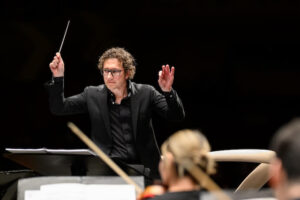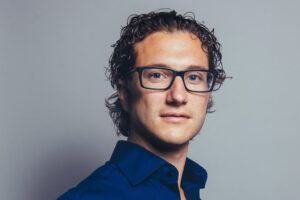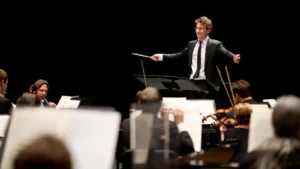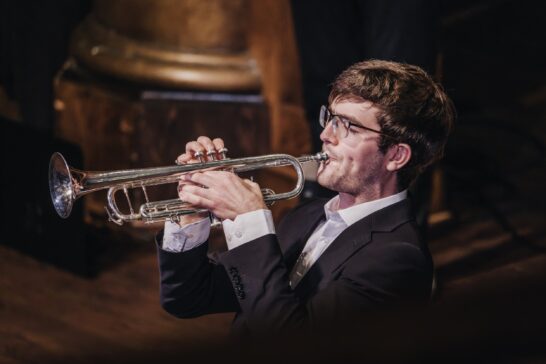Interview with Teddy Abrams (Conducting ’08) in I Care If You Listen

 Internationally acclaimed alumnus Teddy Abrams (Conducting ’08), Grammy Award winner and Musical America’s 2022 Conductor of the Year, was recently interviewed by I Care If You Listen in advance of conducting the Curtis Symphony Orchestra on Friday, December 13, at 3:00 p.m. in Philadelphia’s Marian Anderson Hall, Kimmel Center, and on Sunday, December 15, at 2:00 p.m. in the Raymond F. Kravis Center for the Performing Arts in West Palm Beach, Fla. The composer, pianist, clarinetist, and music director of the Louisville Orchestra discusses the importance of new music and supporting the work of living composers, and reuniting with fellow alumnus Ray Chen (Violin ’10) at their alma mater for two concerts in December.
Internationally acclaimed alumnus Teddy Abrams (Conducting ’08), Grammy Award winner and Musical America’s 2022 Conductor of the Year, was recently interviewed by I Care If You Listen in advance of conducting the Curtis Symphony Orchestra on Friday, December 13, at 3:00 p.m. in Philadelphia’s Marian Anderson Hall, Kimmel Center, and on Sunday, December 15, at 2:00 p.m. in the Raymond F. Kravis Center for the Performing Arts in West Palm Beach, Fla. The composer, pianist, clarinetist, and music director of the Louisville Orchestra discusses the importance of new music and supporting the work of living composers, and reuniting with fellow alumnus Ray Chen (Violin ’10) at their alma mater for two concerts in December.
 Mr. Abrams talks collaborating with Curtis alumni: bassist Nate Farrington, percussionist Gabriel Globus-Honeich, and Yuja Wang—the latter with whom he won a 2024 Grammy with for Best Classical Instrumental Solo for their album, The American Project with the Louisville Orchestra.
Mr. Abrams talks collaborating with Curtis alumni: bassist Nate Farrington, percussionist Gabriel Globus-Honeich, and Yuja Wang—the latter with whom he won a 2024 Grammy with for Best Classical Instrumental Solo for their album, The American Project with the Louisville Orchestra.

“We don’t necessarily make music the same way or see music the same way, but these folks and I have such a deep relationship to musical values that we have remained regular collaborators and very close friends since [our time at Curtis]… I work with these folks every year, multiple times a year, and that continues because we forged a deep bond for what we care about–not just because we like playing music together, but why we play music together.”
In the article, Mr. Abrams also discusses the impact his mentor, Michael Tilson Thomas, music director laureate of the San Francisco Symphony, has had upon his career and the importance of investing in educational and community-driven programming as an orchestra in the 21st century.
Read the I Care If You Listen interview HERE.
Visit Teddy Abrams’ official website.
Portraits of Teddy Abrams by Lauren Desberg. Photos of Mr. Abrams conducting by O’Neil Arnold.


